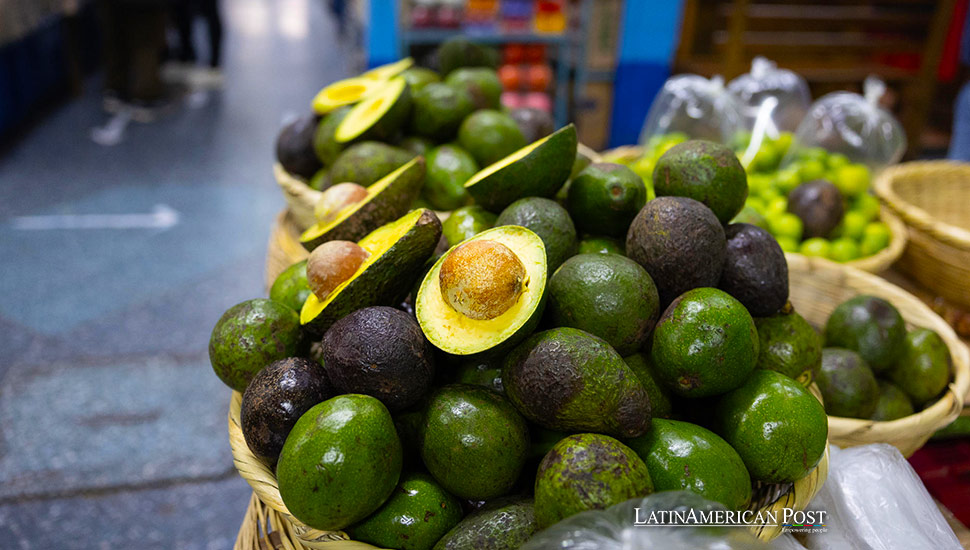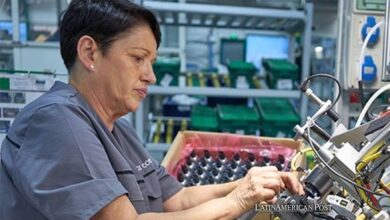Mexico and U.S. Enhance Security for Avocado and Mango Inspectors

New security measures to protect U.S. health safety inspectors of avocados and mangos in Mexico are underway following a recent incident that halted inspections.
Officials from Mexico and the United States have agreed to implement new security terms to protect U.S. health safety inspectors for avocados and mangos. This decision follows an incident earlier this month that led to a temporary suspension of inspections, jeopardizing the lucrative export of these fruits to the United States. Avocados, in particular, represent a significant portion of Mexico’s agricultural exports, with billions of dollars at stake annually due to growing U.S. consumer demand.
Inspections were suspended after a security incident in Michoacan, Mexico’s leading avocado-growing state. This event posed a significant threat to the export of avocados and mangos to the U.S. Michoacan Governor Alfredo Ramirez and U.S. Ambassador to Mexico Ken Salazar announced the new security measures at a joint press conference. The officials emphasized the importance of ensuring the safety of inspectors to maintain the flow of exports.
“The Mexican government plans to work hand in hand with us to ensure that each of our employees is safe so that they can do their job,” said Salazar. Specific details on how security will be enforced were not disclosed, but the measures aim to prevent future incidents that could disrupt the trade.
Mexican Agriculture Minister Victor Villalobos, who also participated in the meeting, suggested that Mexican inspectors could replace U.S. personnel currently handling the checks in the future. This proposal aims to mitigate security risks and streamline the inspection process.
Organized Crime and Agricultural Trade
Michoacan has long struggled with extortion rackets run by powerful organized crime groups. These groups seek to profit from the region’s lucrative agricultural trade, adding another layer of complexity to inspectors’ security challenges. The incident that led to the recent suspension involved local police detaining U.S. inspectors, which Governor Ramirez described as an improper detention resulting from a protest by local police.
To address these ongoing security concerns, the new plan includes coordination with Mexico’s leading avocado exporters association, APEAM. This collaboration aims to bolster security measures and ensure the safety of inspectors while maintaining the integrity of the export process.
The security issues surrounding avocado and mango inspections in Mexico highlight broader challenges faced by agricultural sectors across Latin America. Many countries in the region grapple with similar problems, where organized crime and corruption intersect with lucrative agricultural exports. Ensuring inspectors’ safety and maintaining trade flow requires coordinated efforts and robust security measures.
In Colombia, for instance, the coffee industry has faced threats from armed groups seeking to control production and distribution. Similarly, in Brazil, the beef industry has had to contend with illegal land grabs and violence related to deforestation and land use. These challenges underscore the need for comprehensive strategies addressing security and sustainability in the agricultural sector.
The collaboration between Mexico and the U.S. is a model for how international cooperation can address complex security issues. By working together, both countries can ensure the safety of inspectors, support sustainable agricultural practices, and protect the integrity of their trade relationships.
Future Prospects and Sustainability
Beyond addressing immediate security concerns, the new measures also focus on broader issues such as illegal deforestation and environmental certification for farm products. Governor Ramirez and Ambassador Salazar emphasized the importance of sustainability and environmental stewardship in the agricultural sector. These efforts are critical for ensuring that agricultural practices do not contribute to environmental degradation and that products meet international standards for sustainability.
The commitment to sustainability is significant as global consumers increasingly demand environmentally friendly products. By promoting sustainable practices, Mexico can enhance the appeal of its agricultural exports and secure its position in the worldwide market.
Additionally, labor issues are a crucial focus of the new measures. Ensuring fair labor practices and protecting workers’ rights are essential for maintaining ethical standards in the agricultural sector. APEAM’s involvement in the new security plan underscores the importance of industry collaboration in addressing these issues.
The agreement between Mexico and the United States to enhance security for avocado and mango inspectors marks a significant step in ensuring the safety and continuity of a vital trade relationship. The new measures aim to prevent future incidents that could disrupt exports and address broader issues such as sustainability and labor practices.
The challenges faced by Mexico’s agricultural sector reflect broader issues across Latin America, where organized crime and security concerns intersect with lucrative agricultural exports. By implementing robust security measures and promoting sustainable practices, countries in the region can protect their agricultural industries and support the livelihoods of millions of workers.
Also read: Drug Use in Mexico Increases Risk of Visual Impairment
As Mexico and the U.S. work together to ensure the safety of inspectors and the integrity of the export process, their collaboration serves as a model for international cooperation in addressing complex security and sustainability challenges. With a focus on safety, sustainability, and ethical practices, the agricultural sector can continue to thrive and meet the growing demands of global consumers.





